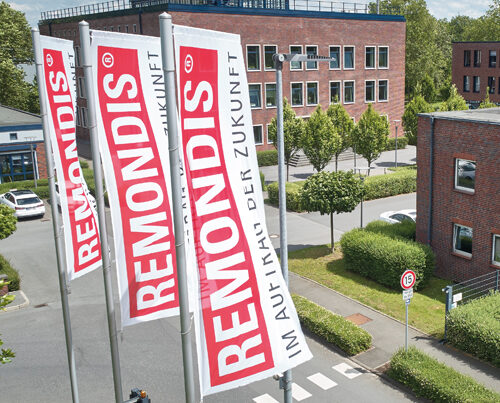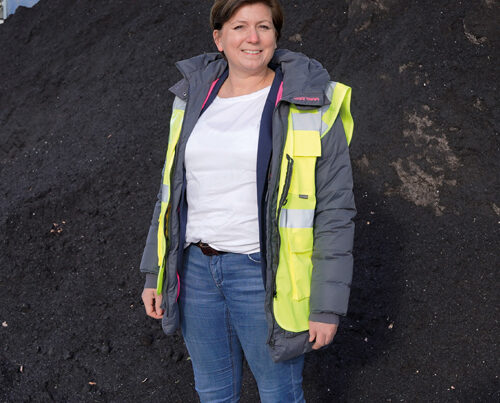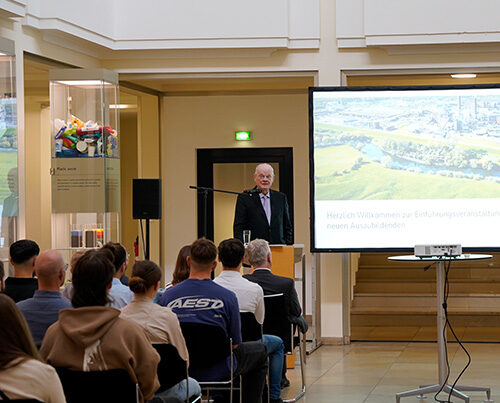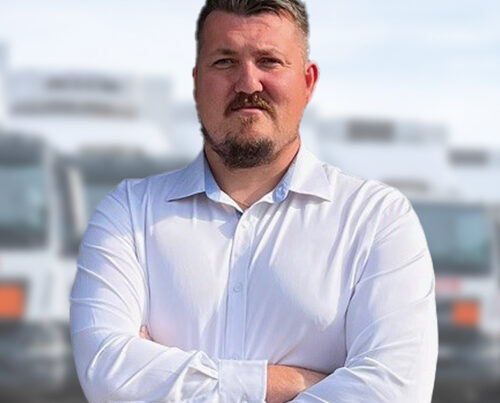There are times when negative events come together, make each other even more powerful and threaten to develop into a storm. This is precisely what numerous businesses operating in the circular economy experienced over the last few weeks: the number of staff calling in sick during the holiday period shot up as the summer Covid wave hit the country. A lack of employees led to collection trips having to be cancelled and sorting and recycling plants also found themselves having to cope with massive problems.
Our industry was able to prevent the worst case scenario happening by the skin of its teeth – by bringing in staff, who were no longer working in the operational side of the business, to help out at short notice. Thanks to them, the collection trips could be carried out with just a few days’ delay.
The current staffing situation is a shot across the bow for circular economy companies, as it is for all businesses delivering essential services. Another storm is definitely on its way. And the current staffing crisis may just be a light breeze compared to what is coming next. It would be a perfect storm.
According to the latest Status Report on the German Circular Economy, 310,000 people were working in our sector in 2019.
The skills shortage is putting essential services at risk
Why? Because the staffing situation is not going to improve any time soon. For years now, the circular economy has been among those industries most badly affected by the skills shortage. According to the latest Status Report on the German Circular Economy, 310,000 people were working in our sector in 2019. Demand for new employees has been steadily increasing over the last few years. There are a number of reasons for this trend – for example, because recycling has got better and material streams, as a result, more complex.
This has also led to an increase in the need for logistics services. And yet there has been a shortage of HGV drivers for a long while now. The World Road Transport Organisation estimates that there were 425,000 unfilled driver positions in Europe at the end of 2021. This figure shot up to 600,000 when the war broke out in Ukraine. There are up to 80,000 unfilled driver positions in Germany alone. And the situation is only going to get worse. Each year, at least 40,000 HGV drivers retire from their profession in Germany alone with approx. just 20,000 new drivers entering the job market.
But it’s not just about the drivers. One quarter of the workforce employed by the circular economy companies is over the age of 55. It will be a challenge simply to replace these employees over the coming years and an even bigger challenge to find new people for the industry.
One key factor fuelling this problem is that the last of the so-called baby boomers, the people born during the birth rate surge between 1950 and 1964, are heading for retirement. All of the following generations have been much smaller. “Generation Z” – those born between 1996 and 2010 – is just half the size. Which means many companies are simply not able to fill their vacancies. According to KOFA (a centre of excellence focused on tackling skills shortages), around 350,000 of the approx. one million vacant positions available last year were unable to be filled. A war for talent has broken out on the job market – and not just for those people finishing top of their class.




Sustainability counts: the outlook is good for circular economy firms
Having said that, the circular economy firms have a good chance of making a positive impression because sustainability has become an important factor on the job market for attracting new employees. What is more sustainable than conserving natural resources, curbing climate change and working day in day out to make growth and prosperity possible within the planetary boundaries? Recycling firms like REMONDIS do not need to become sustainable. We already practise sustainability every single day!
Preparing for the coming storms: REMONDIS’ apprenticeship initiative
Which is why REMONDIS launched its apprenticeship initiative to get young people interested in the circular economy. And it is proving to be a success: 1,396 young people are currently learning one of the many circular economy professions at REMONDIS and its public private partnerships. All in all, there are 1,920 apprentices across the whole of the RETHMANN Group. Over 400 young adults opted to start an apprenticeship course at REMONDIS this year. Overall, the RETHMANN Group had over 600 new intakes this year.
The HGV driver apprenticeship course is top of the list of the most popular professions: 358 young people are currently being trained by REMONDIS to become a truck driver. They know that they will not only get a fair salary when they work at our company but that they will also have a work-life balance that allows them to spend time with their friends and family. Joining them at our company are, among others, the 183 new apprentices training to become industrial management assistants and 119 young people looking to qualify as office management assistants.






The circular economy: future proof, sustainable and meaningful
The figures show that the circular economy can be an attractive industry for young people – if we confidently portray it exactly as it is: future proof, sustainable and meaningful. Over the coming years, REMONDIS will continue to do its bit to mitigate the skills shortage in the recycling industry. If we don’t, we will be threatened with a perfect storm that will first impact on our industry and then on the whole of society. At the end of the day, it is simply not possible to have drinking water, closed loops and climate neutrality without the circular economy.
Image credits: image 1: Adobe Stock: oraziopuccio, Adobe Stock: Руслан Галиуллин, Adobe Stock: aetb, Adobe Stock: Glebstock; image 2: Adobe Stock: oraziopuccio, Adobe Stock: Руслан Галиуллин; images 3–5: REMONDIS












